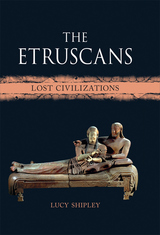
Embassies and Illusions shows how peculiar circumstances in the early Ch'ing dynasty led to the application of the inherited routines of the tribute embassy to relations with Europeans. Chinese records of those embassies strengthened the illusion, persisting into the Opium War period, that the tribute system was relevant to the conduct of Sino-European relations.
From archival and printed sources in seven languages, John Wills traces the progress of four embassies—two Dutch, two Portuguese—to the court of K'ang-hsi. He constructs vivid pictures of the ambassadors and their staffs, their difficulties in their ports of arrival, the long journeys to Peking, the ceremonies at the courts, the gifts exchanged, the influence of Jesuits resident in Peking, and, of special interest, the young Emperor in the early years of his reign. Contexts of Ch'ing court and provincial politics and of Dutch and Portuguese relations with China are clearly described.

Drawing on theoretical work, particularly that of Lacan and Zizek, Schulte-Sasse shows how films such as Jew Süsss and The Great King construct fantasies of social harmony, often through distorted versions of familiar stories from eighteenth-century German literature, history, and philosophy. Schulte-Sasse observes, for example, that Nazi films, with their valorization of bourgeois culture and use of familiar narrative models, display a curious affinity with the world of Enlightenment culture that the politics of National Socialism would seem to contradict.
Schulte-Sasse argues that film served National Socialism less because of its ideological homogeneity than because of the appeal and familiarity of its underlying literary paradigms and because the medium itself guarantees a pleasurable illusion of wholeness. Entertaining the Third Reich will be of interest to a wide range of scholars, including those engaged in the study of cinema, popular culture, Nazism and Nazi art, the workings of fascist culture, and the history of modern ideology.

In a book of keen perception and vast sweep, a foremost scholar examines one hundred years of Russian revolutionary thought and the men who shaped and were caught up in it. Adam Ulam displays an unusual ability to penetrate the core of the Soviet mind as it evolved and was encapsulated in history.
Why did the Russians sign a treaty with Hitler? Why did they build a Berlin Wall, rattle missiles, and then sign a nuclear-test-ban treaty with President Kennedy? Why do they fear Titoism? Why was detente fostered when Nixon was president? By reflecting on the psychology, ideology, and frenetic activity of revolutionary Russians, Ulam leads us to answers.
Ulam's ability to explain events by tracing the continuities in the Russian mentality makes this work a special achievement in Soviet studies and intellectual history.

In the process, Schechter shows how deeply imbricated the analyst-patient relationship is in this effort. Since the mid-twentieth century, the "real" relationship between analyst and patient is no longer the unremarked background of analysis but its very site. Psychoanalysts seek to validate the centrality of this relationship with theory and, through codified "standards," to claim it as a privileged technique. It has become the means by which psychoanalysts, in seeking to protect their disciplinary autonomy, have unwittingly bound themselves to a neoliberal discourse of regulation.

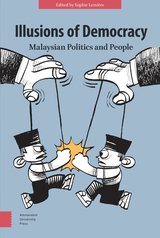
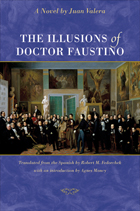
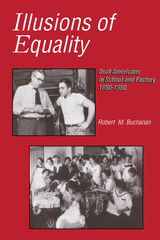
The working lives of Deaf Americans from the mid-1850s to the post-World War II era depended upon strategies created by Deaf community leaders to win and keep jobs through periods of low national employment as well as high. Deaf people typically sought to de-emphasize their identity as sign language users to be better integrated into the workforce. But in his absorbing new book Illusions of Equality, Robert Buchanan shows that events during the next century would thwart these efforts.
The residential schools for deaf students established in the 19th century favored a bilingual approach to education that stressed the use of American Sign Language while also recognizing the value of learning English. But the success of this system was disrupted by the rise of oralism, with its commitment to teaching deaf children speech and its ban of sign language. Buchanan depicts the subsequent ramifications in sobering terms: most deaf students left school with limited educations and abilities that qualified them for only marginal jobs. He also describes the insistence of the male hierarchy in the Deaf community on defending the tactics of individual responsibility through the end of World War II, a policy that continually failed to earn job security for Deaf workers. Illusions of Equality is an original, edifying work that will be appreciated by scholars and students for years to come.
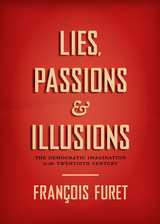
This conversation would be, sadly, Furet’s last—he died while Ricoeur was completing his edits. Ricoeur did not want to publish his half without Furet’s approval, so what remains is Furet’s alone, an astonishingly cohesive meditation on the political passions of the twentieth century. With strokes at once broad and incisive, he examines the many different trajectories that nations of the West have followed over the past hundred years. It is a dialogue with history as it happened but also as a form of thought. It is a dialogue with his critics, with himself, and with those major thinkers—from Tocqueville to Hannah Arendt—whose ideas have shaped our understanding of the tragic dramas and upheavals of the modern era. It is a testament to the crucial role of the historian, a reflection on how history is made and lived, and how the imagination is a catalyst for political change. Whether new to Furet or deeply familiar with his work, readers will find thought-provoking assessments on every page, a deeply moving look back at one of the most tumultuous periods of history and how we might learn and look forward from it.
READERS
Browse our collection.
PUBLISHERS
See BiblioVault's publisher services.
STUDENT SERVICES
Files for college accessibility offices.
UChicago Accessibility Resources
home | accessibility | search | about | contact us
BiblioVault ® 2001 - 2024
The University of Chicago Press






